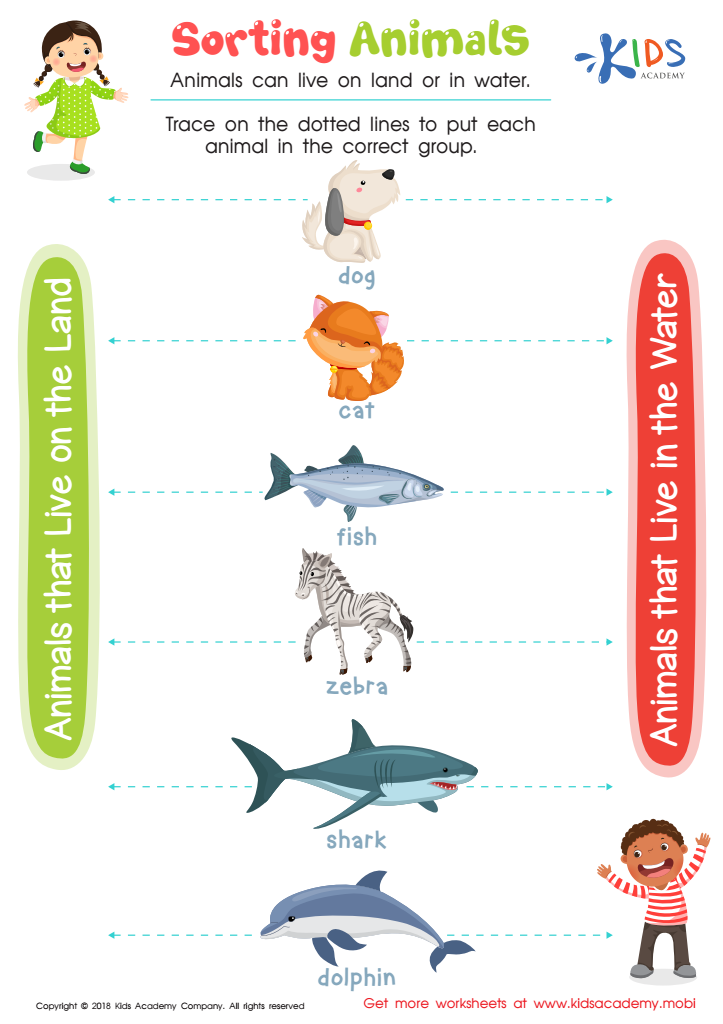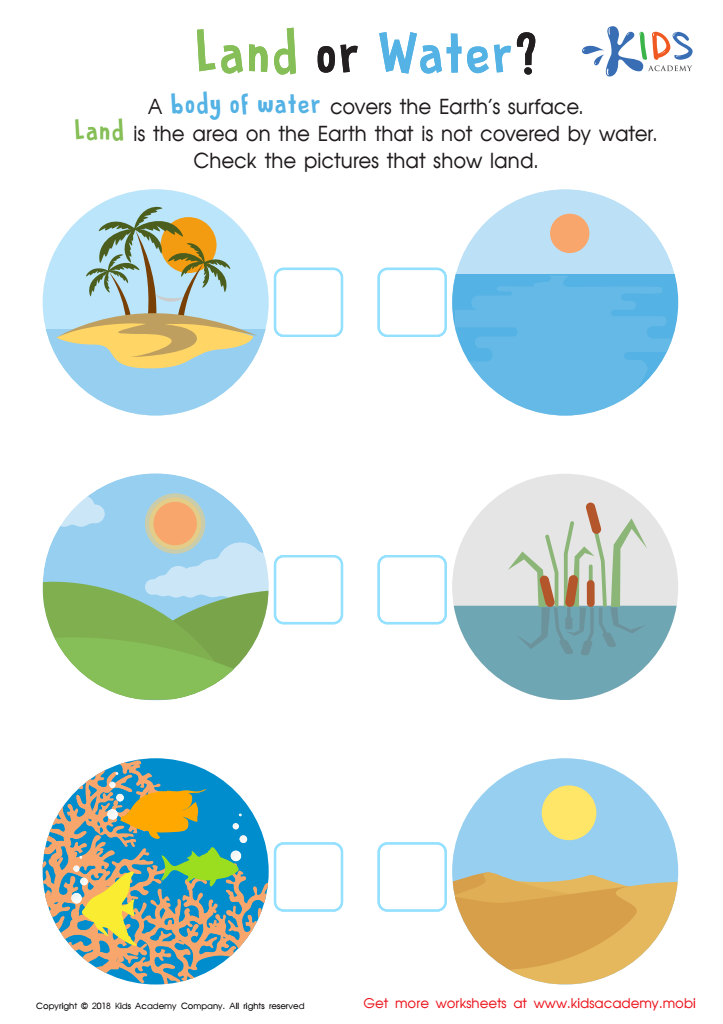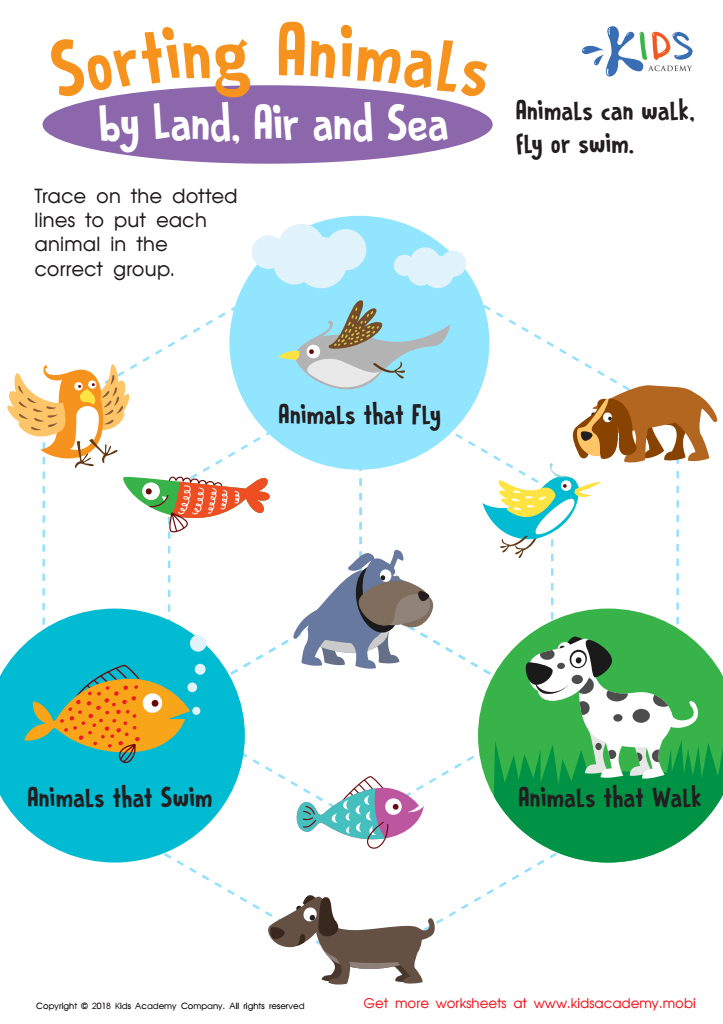Understanding habitats Normal Worksheets for 6-Year-Olds
5 filtered results
-
From - To
Discover our engaging "Understanding Habitats" worksheets, specially designed for 6-year-olds! These hands-on activities help young learners explore various ecosystems and the plants and animals that inhabit them. With colorful illustrations and easy-to-follow instructions, children will develop essential skills while deepening their understanding of wildlife and their environments. Perfect for classroom use or home learning, these worksheets encourage creativity and critical thinking as kids categorize habitats and recognize key features. Enhance your child's knowledge of nature in a fun and interactive way. Visit us for a resource that fosters curiosity and a love for learning about our planet’s diverse habitats!


Sorting Animals Worksheet


Space: Assessment 1 Worksheet


Land or Water Worksheet


Sorting Animals by Land, Air and Sea Worksheet


Animals and Plants: Assessment 2 Worksheet
Understanding habitats is important for 6-year-olds because it helps them connect with the world around them. Kids are naturally curious, and learning about the different environments where animals and plants live sparks their interest. When children learn about habitats, they discover the variety of ecosystems, such as forests, oceans, deserts, and wetlands. This knowledge fosters empathy and respect for animals and the environment.
Parents and teachers should care about this topic because it lays the foundation for environmental awareness. By understanding habitats, children learn about the importance of biodiversity, including the relationships between animals, plants, and their surroundings. This foundation is crucial for nurturing responsible future citizens who appreciate nature and actively participate in its preservation.
Moreover, exploring habitats can enhance critical thinking skills. As children investigate how animals adapt to their environments, they develop problem-solving abilities and scientific reasoning. Creative lessons about habitats can engage their imagination, encouraging them to draw, write, or even act out what they've learned.
Ultimately, understanding habitats cultivates a sense of wonder and inquiry, making learning fun and meaningful, while paving the way for lifelong stewardship of our planet.
 Assign to My Students
Assign to My Students



.jpg)












